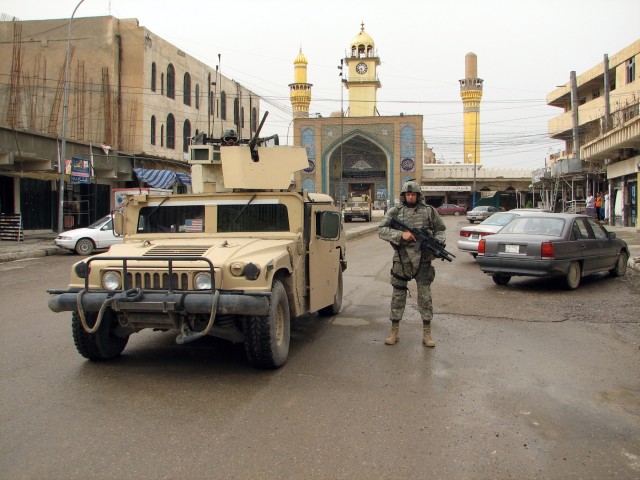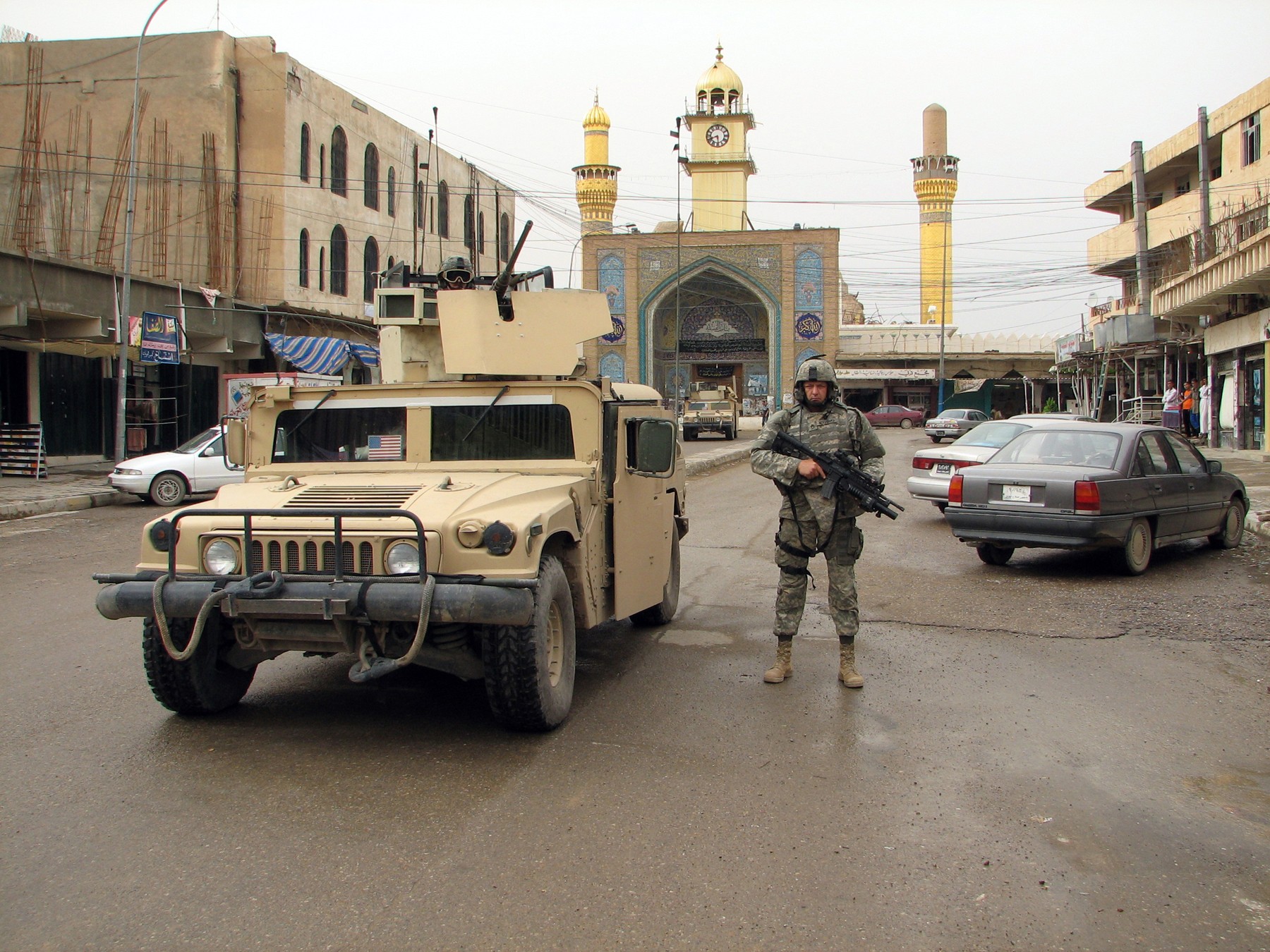HOHENFELS, Germany - More than two years have passed since Staff Sgt. Clifford Neighbors received an Army Commendation Medal with V device for valor and a Bronze Star while serving with the 1st Battalion, 4th Infantry in Iraq.
Neighbors's actions on the streets of Baghdad in August 2006 earned him the valor award he attributes to his team and a former platoon sergeant.
During a routine mission making the rounds of Iraqi National Police checkpoints, Neighbors's convoy was halted by three improvised explosive devices.
After securing the area and waiting for explosive ordnance disposal experts to clear the route, Neighbors said he and the interpreter riding in his truck got out of the vehicle.
"As I walked (toward the opposite side) to check for damage, shots rang out," he said.
Neighbors and the interpreter were struck by sniper fire, he said. The sergeant's arm, lungs and heart were pierced. The interpreter was shot in the chest.
EOD personnel brought the interpreter to the truck, where Neighbors tended to the man's injuries in spite of his own wounds. "I reassured him everything would be OK and I gave him first aid," Neighbors said.
The interpreter later passed away at a combat support hospital nearby.
The sergeant said he reflects on those events every day. "It's one of the first things I think about," he said.
He said his decision to render first aid while sustaining a life-threatening injury was not heroic - it was his duty as a Soldier.
"I am glad that someone thought that my actions were worthy of a medal, but I'm just a guy who was just doing his job 'over there' and trying to survive," he said.
The 15-year Army veteran said the advice he received as a young infantryman from a platoon sergeant injured in the invasion of Panama guided his actions and decisions in the truck that day.
"He told me the only way he survived was by staying calm," Neighbors said.
Neighbors said he remained calm, even after he noticed a bullet hole in the center of his chest with blood pouring out.
"Some of the people that were part of my team told me they could not have stayed so calm," he said. "I really did not know the extent of the injury at the time. I just knew it hurt."
Neighbors, who calls Odessa, Texas home, said he believes the actions of his fellow National Police Training Team members that day is what ultimately saved his life.
"Those 10 men on my team, they're heroes," he said.
The team made the decision to evacuate the site and rush him and the interpreter to the nearest hospital rather than wait for a helicopter to airlift them back, the sergeant said.
The bond formed with his team during the deployment remains strong, he added, noting that he writes to his fellow Soldiers regularly while he's on leave.
"It's a bond that will probably never be broken; you've experienced the good, bad and the in-between with these men and women," he said.
He called that bond forged through combat different than a bond formed with others who have never served.
"We entrust our lives to each other, because it's just you and them," he said. "That's all you have and that's the difference."
Now working as the Better Opportunity for Single Soldiers program president for U.S. Army Garrison Hohenfels, Neighbors is far from combat operations. But he said he would go back again.
"I would go to anywhere they told me to go, simply for the fact that my country calls on me and I need to be there," said Neighbors.


Social Sharing